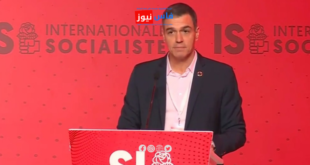A decision by the International Boxing Association (IBA) to exclude Algerian boxer Imane Khelif from international competitions has sparked widespread debate in sports circles. This decision came after the release of test results conducted on Khelif on March 17, 2023, which raised questions about their eligibility to participate in a specific category due to gender-related issues.
In a notable development, leaked documents revealed a threatening letter sent by the lawyer of the Algerian Olympic and Sports Committee, Ms. Nadia Bakour, to the president of the IBA. In her letter, the lawyer demanded that the results of Khelif’s tests not be published, as well as any other medical documents that might reveal details about the boxer’s gender.


Despite these attempts, the IBA issued its final decision to exclude Imane Khelif from international competitions, confirming that the decision was based on test results that showed the boxer’s ineligibility to participate in the specified category due to gender-related issues.
Adding to the complexity of the situation, the documents indicated that the decision was accompanied by the boxer’s own signature, suggesting that Khelif had reviewed and agreed to the test results.

This incident raises numerous questions about eligibility criteria in competitive sports and how to deal with gender-related issues in the world of athletics. It also highlights the legal and ethical challenges faced by international sports bodies in such cases.
No comment was available from Imane Khelif or their representatives regarding these developments at the time of writing this report. This issue is expected to continue to provoke debate about athletes’ rights and competition rules in international sports.
The case of Imane Khelif underscores the ongoing challenges in sports regarding gender identity and fair competition. It also raises important questions about privacy, athlete rights, and the role of sports governing bodies in making such sensitive decisions. As the sports world continues to grapple with these complex issues, this case may set a precedent for how similar situations are handled in the future.
 فاس نيوز ميديا جريدة الكترونية جهوية تعنى بشؤون و أخبار جهة فاس مكناس – متجددة على مدار الساعة
فاس نيوز ميديا جريدة الكترونية جهوية تعنى بشؤون و أخبار جهة فاس مكناس – متجددة على مدار الساعة













